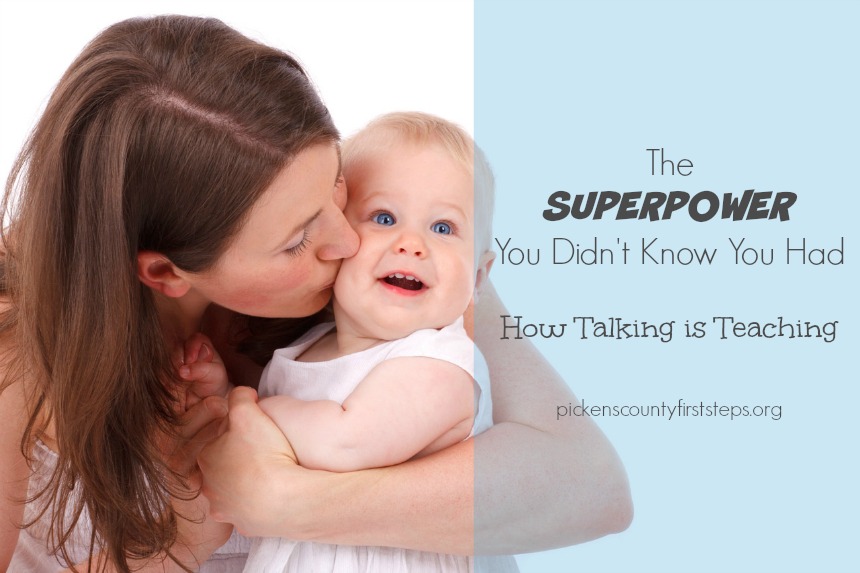When I brought my first baby home from the hospital, I found myself talking to her throughout the day about things she couldn’t possibly understand:
Should Mommy order a latte or a cappuccino today?
Would you like to wear your pink onesie or the green one?
I chatted with her as I changed diapers, as I fed her, as I got her dressed and undressed. I made up ridiculous songs like it was my job. {And hoped that someone wasn’t secretly taping all of my crazy new-mom antics.}
At the time, I didn’t realize that our one-way conversations were one of the most powerful building blocks of brain development. I had no clue that I was promoting literacy, modeling healthy social interaction, teaching her that we look people in the eye as we have conversations, expanding her vocabulary, and so much more.
I was simply talking to this tiny new human who was suddenly part of everything I did.
We neglect the power and significance of interactions like talking and singing to our young children because they seem so simple and mundane.
But it’s the everyday-ness of simple communication and interaction that makes it so beautiful. Anyone can do this, regardless of education, socio-economic level, or singing ability. {Thank goodness.}
We live in a culture that offers ballet classes and music lessons for tiny tots who have only recently learned how to walk. Ambitious parents wonder how soon their toddlers should begin taking French or when their baby should learn how to read.
And while dance and music and foreign language are fine if that’s your thing, it’s easy to forget that the simplest of daily interactions make the biggest impact.
Talk to your baby in the bouncy seat as you fix dinner.
Tell her about the sights you see as you push her in the stroller.
Sing him a silly song as you wash his hair.
We at Pickens County First Steps love the “Talking is Teaching” campaign launched by Too Small to Fail.
Our main goal has been to help parents make the most of the incredible power they have in ensuring their children’s healthy brain development. Research shows that by talking, reading, and singing with infants and toddlers everyday from birth, parents can help form new neural connections and build a young child’s vocabulary. These actions not only help prepare a child for a lifetime of learning, but will help ensure they can succeed in school and in life.
— Too Small to Fail
Enjoy this short video with celebrity moms who show us how simple and fun these everyday moments can be.
As you seek to nurture your own children or those in your care, know that your everyday conversations are making a difference. And if you’re working to nurture and encourage parents, whether as a teacher, child care worker, or social service provider, remind them that the simplest of interactions hold the power to bond with their children and boost brain development.
Follow us on Facebook and Twitter to keep us with our posts.
You can now follow us on Pinterest for other great resources on parenting, child care, literacy, and nurturing the young child.


